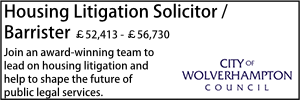High Court grants London borough interim injunction banning 'car meets'
- Details
Enfield Council has secured an interim injunction prohibiting dangerous ‘car meets', also known as car cruises, in the London borough.
In London Borough of Enfield v Persons Unknown [2024] EWHC 3142 (KB), Mrs Justice Hill granted the application after finding there was "plainly a serious issue to be tried" and that persons unknown had been responsible for antisocial behaviour and public nuisance.
Acting on behalf of the council at the hearing earlier this month (4 December), Francis Hoar of Field Court Chambers said car cruising had been a particular problem in the borough.
Hoar referenced an incident in December 2013 involving a high-speed "cat and mouse" game between several cars on the North Circular Road, in which three people were killed.
He also showed the court video footage from 2022 of vehicles racing, performing stunts and "donutting" in the borough.
In addition, the court considered Enfield's efforts to curb car cursing via a now-expired Public Spaces Protection Order (PSPO) in February 2021.
According to the council, the PSPO failed to reduce the incidence of car cruising, with around 30 individual car meets taking place at a park in the borough during the period in which the PSPO was in force.
The council said it sought the injunction due to the pressing need to be able to take enforcement action to prevent the dangerous behaviour inherent in car cruising, pending a consultation process ahead of re-introducing the PSPO.
It also argued that an injunction was required because the PSPO did not appear to have a sufficient deterrent effect on the participants, evidenced by the considerable number of complaints about dangerous driving, racing and cruising within the duration of the PSPO.
The focus of the council's draft injunction was car cruises involving gatherings of two or more persons between the hours of 3 pm and 7 am within the borough.
It sought to restrict the activities of the following three groups of 'Persons Unknown' involved in car cruising:
- Firstly, those who participate in car cruises where some of those some of those present actually engage in motor racing or motor stunts or other dangerous or obstructive driving.
- Secondly, those who participate in car cruises by attending with the intention or expectation that some of those present will engage in those activities.
- Finally, it sought to restrict those who promote, organise or publicise (by any means whatsoever) car cruises again, with the intention or expectation that some of those present will engage in those activities.
It also sought the power of arrest under section 27 of the Police and Justice Act 2006.
Considering the merits of the injunction application, Hill J said: "There is plainly a serious issue to be tried (at the very least) to the effect that the Defendant groups of Persons Unknown have repeatedly raced other cars at high speeds and dangerously; used car parks and other areas to do dangerous stunts; engaged in that behaviour in residential areas; caused gatherings of people; done these activities at night and created a high volume of noise, including until the early hours of the morning; engaged in sexual activity in cars; fought with each other; and caused a considerable nuisance to local residents, including vulnerable and elderly people and families with young children.
"In so doing, they have been responsible for antisocial behaviour; and caused a public nuisance."
The judge found that the balance of convenience justified an injunction against car cruising, including injuncting newcomers.
Turning to the power of arrest, the judge said she was satisfied that the second condition in section 27 of the 2006 Act was met, noting that the "harm in question is the risk of personal injury or death from Prohibited Activities in the injunction".
She added: "As to the future conduct of the claim, I am content to adopt the same course that has been taken in other injunctions of this kind, namely to list a return date in one year, with a direction that the Claimant file and serve (by publishing it on its website) updating evidence about the compliance and non-compliance with the injunction and details of enforcement.
"The usual provisions would apply, allowing any person affected to apply at short notice to vary or set it aside, as noted above."
Commenting on the interim injunction, Enfield Council's Cabinet Member for Community Cohesion and Enforcement, Cllr Gina Needs, said: "I am delighted that the court has listened to the detailed evidence presented by the Council, police, residents and local business owners, and have taken positive action by granting an injunction to stop those who continue to make our residents lives a misery by taking part in car meets."
Adam Carey
Must read
Local authority legal teams after Mazur
18-03-2026 1:00 pm
01-07-2026 11:00 am
























